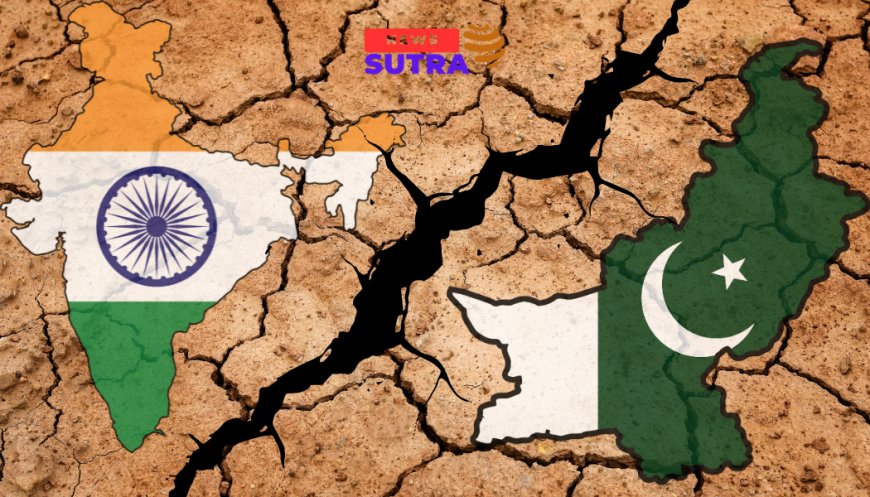India-Pakistan Diplomatic Showdown in Washington: Tensions Spill Beyond Borders
A high-profile diplomatic confrontation between Indian and Pakistani envoys in Washington, D.C. has reignited global focus on South Asia’s enduring tensions. Explore how it unfolded and what it means for international diplomacy.

Washington, D.C. – June 3, 2025 — A tense diplomatic standoff between India and Pakistan unfolded this week in Washington, D.C., drawing sharp international attention. The clash, sparked during a high-level roundtable at the Brookings Institution, escalated into a public exchange of accusations between the two South Asian nations’ ambassadors, threatening to further erode already fragile bilateral relations.
The confrontation is being viewed not merely as an isolated diplomatic tiff but as a sign of deepening strategic and ideological divergence between the nuclear-armed neighbors—now playing out on the global stage.
What Triggered the Diplomatic Row?
The incident began during a policy forum titled “South Asia in a Shifting Geopolitical Order”, hosted by the Brookings Institution, where both Indian Ambassador Taranjit Singh Sandhu and Pakistani Ambassador Masood Khan were present.
While the event was intended to foster dialogue on climate cooperation and trade opportunities, tensions erupted when Ambassador Khan raised the issue of alleged human rights violations in Jammu & Kashmir, accusing India of “institutional repression” and calling for global intervention.
Ambassador Sandhu swiftly rebutted the comments, stating:
“Pakistan continues to misuse international platforms to promote a narrative of victimhood while providing safe haven to terrorist entities banned by the United Nations.”
(Source: The Hindu)
Escalation at the Indian Embassy Press Briefing
The situation escalated further during a post-event press briefing at the Indian Embassy in Washington, where Ambassador Sandhu doubled down on India’s position, saying:
“The global community must ask: who is supporting cross-border terror? Who sheltered Osama bin Laden? The answers are evident.”
(Source: Times of India)
Pakistan's Ministry of Foreign Affairs, in response, summoned the U.S. Ambassador in Islamabad to register what it termed “India’s provocative conduct and fabricated narratives,” as reported by Dawn.
U.S. State Department's Response: "Stay Engaged, Not Enraged"
Reacting to the confrontation, a spokesperson for the U.S. State Department, while refraining from taking sides, emphasized the importance of dialogue:
“We encourage both parties to resolve their differences through peaceful bilateral mechanisms. Washington remains committed to regional stability.”
The State Department's neutral stance was met with skepticism by foreign policy analysts, with Foreign Policy observing that the U.S. finds itself in a tightrope situation, given its strategic partnerships with both nations.
Strategic Implications for South Asia and Beyond
This diplomatic scuffle comes at a time of shifting alliances in global geopolitics. With India strengthening its strategic ties with the U.S., Japan, and Australia under the Quad, and Pakistan leaning into China’s Belt and Road Initiative, the confrontation signals a deeper ideological rift.
Former Indian diplomat Shivshankar Menon, speaking to Carnegie India, commented:
“The battle is no longer just about borders—it’s about narratives. Pakistan wants to internationalize Kashmir, while India aims to project itself as a responsible global player fighting terrorism.”
Background: A Long History of Diplomatic Flashpoints
This isn’t the first time the two countries have clashed on foreign soil. At the UN General Assembly, and most recently at the G20 side-events, similar confrontations have occurred, especially regarding the Kashmir issue and terrorism.
In 2022, a similar heated exchange took place at the United Nations Human Rights Council, further showcasing the long-standing use of international forums for bilateral sparring.
Public and Media Reactions
Social media in both countries exploded with commentary. Indian users trended #IndiaDefendsTruth, while Pakistani users launched #KashmirVoiceSilenced. Media outlets aligned with both governments echoed nationalistic tones.
NDTV, in its coverage, emphasized India's “firm stand against terror diplomacy,” while Geo News Pakistan portrayed the incident as a “diplomatic win” for bringing Kashmir into global focus again.
What Comes Next?
Experts warn that such incidents, while symbolic, could have tangible consequences:
-
Diplomatic downgrades in certain multilateral forums
-
Further delay in the revival of bilateral talks, which have been frozen since 2019
-
Increased lobbying efforts by both nations in U.S. think tanks and policy circles
Meanwhile, civil society groups like South Asia Peace Initiative (SAPI) are urging both sides to de-escalate and engage in track-two diplomacy to avoid further deterioration of ties.
Final Thoughts
This diplomatic face-off between India and Pakistan in Washington is not just about bruised egos or rebuttals. It reflects a broader struggle for narrative dominance, global positioning, and regional leadership. As both countries continue to jostle for influence on international platforms, the need for nuanced diplomacy, not grandstanding, becomes increasingly urgent.




















































